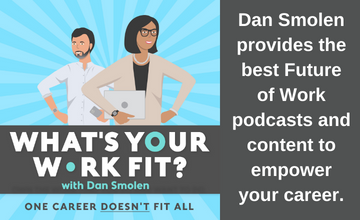Podcast: Play in new window | Download (Duration: 33:11 — 38.0MB)
Summer Camp: Where Fun and Friendship Lead to Meaningful Lives and Careers
About this episode:
“We see a lot of people do well in their [adult] careers who, coincidentally, did well in their careers at camp. I have no data, other than the anecdotal experiences of the time [we spent] there. But you see people who rose to leadership positions in camp and were viewed as successful staff members that have had successful careers in whatever they were doing after camp.”
-Stuart Katz, Founder and President of Elm City Communications
The Memorial Day Weekend marked the official start of summer. Although this year, it felt like summertime started without the fun.
Over 11 million kids and young adults attend summer camp programs.
But in 2020, some states—concerned about the spread of the COVID-19 Coronavirus—banned overnight summer camps from operating. For kids who worked hard in school ten months of the year for the reward of two months at summer camp, that loss is palpable.
During August 2019, I recorded this podcast interview with my best friend Stuart Katz. Stu and I attended as campers, and later worked together, at Camp Laurelwood, a non-profit overnight summer camp located near the Southern Connecticut Shoreline. Last week, in response to the COVID-19 Coronavirus outbreak, the State of Connecticut banned overnight camps, including Camp Laurelwood, from operating this summer.
At camp, fun and friendship often lead campers and staff to meaningful adult careers.
In this episode, Stu describes:
- His first summer at camp. Starts at 3:29
- Trying activities beyond his comfort zone. Starts at 5:25
- The camp radio station where he and Dan were deejays. Starts at 10:40
- The spark of imagination and creativity in him that started at camp. Starts at 15:45
- How adult professionals benefit from camp-like experiences. Starts at 19:27
- Why it is important to send kids to summer camp. Starts at 23:06
We remain hopeful that, in 2021, summer camps like Camp Laurelwood open on schedule. The camper experience most definitely shaped our adult lives and meaningful careers, and fostered hundreds of lifelong friendships.
About our guest:
Stuart Katz first attended Camp Laurelwood in 1968 as a seven-year-old. He later served it as a staff member and board member. Since his first summer there Stu had never, until this year, missed Camp Laurelwood’s Opening Day festivities.
Stu earned a Bachelor of Science from the Park School of Communications at Ithaca College, where currently he serves as an adjunct professor. He also received a Master of Arts in Corporate Communications from Seton Hall University. His company, Elm City Communications, provides corporate communications and video production services to the global healthcare community. Aside from his corporate work, Stu is deeply involved in many philanthropic efforts including his lifelong work for Camp Laurelwood. He lives and works in New Jersey.
EPISODE DATE: May 29, 2020
Social Media:
American Camp Association: Find a Camp
